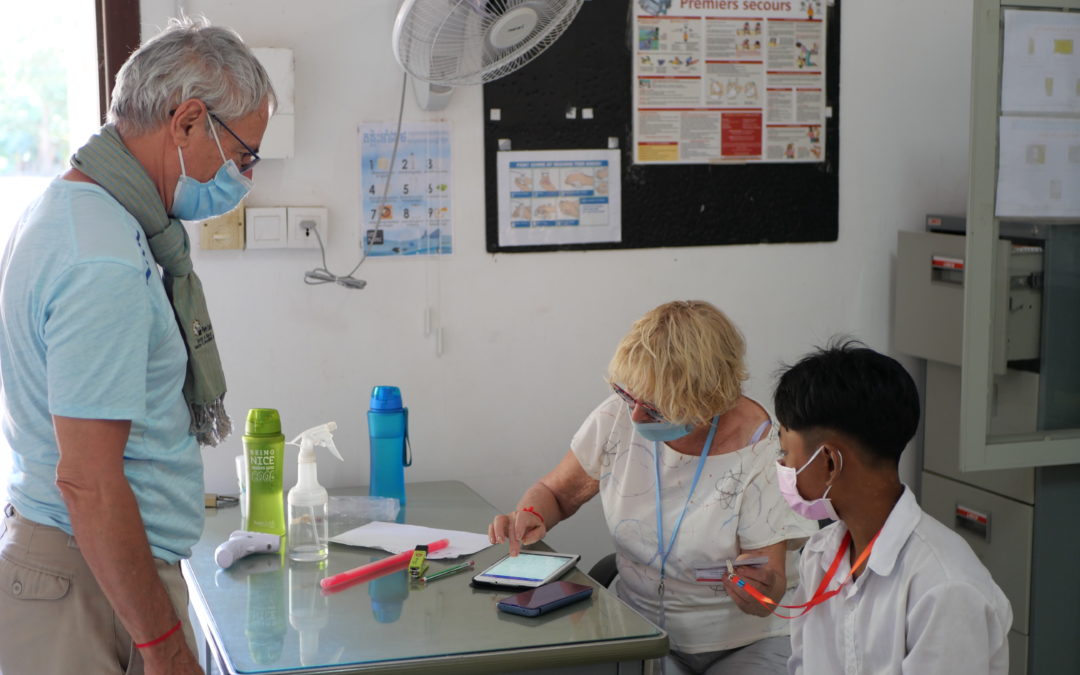Jean-Pierre and Michèle, our referring doctors, look back on their last 4 months at the Bayon School, after 2 long years impacted by the Covid. How are the children doing and what are the current projects?
Like every year we come for several months to provide medical care for our students. We expected to measure the impact of the Covid crisis which has resulted in the loss of jobs for the majority of parents.
This was not the case. We have seen a steady growth in all children and no signs of undernutrition.
This good result comes from the food aid that the Bayon School has provided since the appearance of Covid to families who had no income. It consisted of monthly rice and various foods (eggs, noodles, oil, salt, …) and weekly vegetables thanks to the purchase of a part of the production of our farmers. This aid, still in progress, has been made possible thanks to a call for donations.
A better hygiene
During the annual examination, a decrease in dental lesions was noted. This good result comes from the regular care that has been put in place thanks to the help of a dentist who has been treating our students for several years at very advantageous rates. The brushing of the teeth that we do after lunch has also contributed to these good results but there is still progress to be made by involving teachers, social workers and nurses.
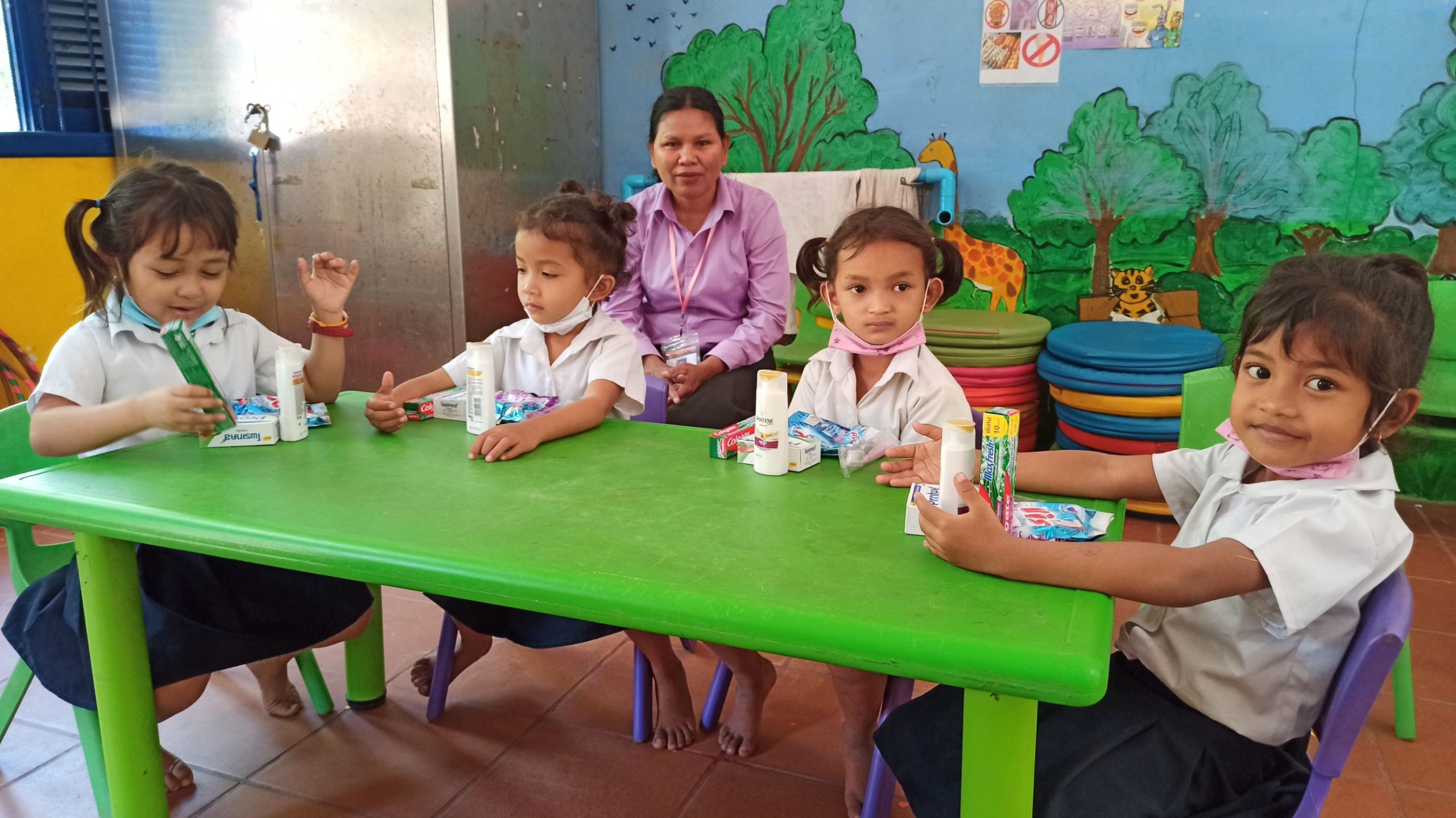
Showers have also been installed to allow children who arrive at school dirty to wash themselves and put on a clean uniform. This allows them to be aware of a better hygiene and a decrease of skin infections which were numerous since several years.
Educating children is not enough. It is also necessary to get the parents to adhere. We had planned to carry out health hygiene workshops with the parents. Unfortunately, the governmental sanitary rules linked to the Covid epidemic did not allow us to implement them, the access to the school for parents and large gatherings being forbidden.
Access to water for all
During the major medical survey that allowed us to visit 160 families in 2019, we noticed that many families did not have access to drinking water, which led to digestive problems. Many of them consumed water directly from the borehole without boiling it, others bought purified water, which represented a significant cost for them.
We therefore decided to allocate a sand filter, in priority to the poorest families. They were provided by Water for Cambodia, an NGO financed mainly by the Rotary Club. A small fee was charged so that everyone could take ownership of their filter. By 2021, we have installed 29 filters and by 2022, 33 are planned. Before the installation of the sand filters, families are brought together to explain how they work. In case of problems, free maintenance is provided by Water for Cambodia. In addition, our social team, during its regular visits, checks the use and the good functioning of it.
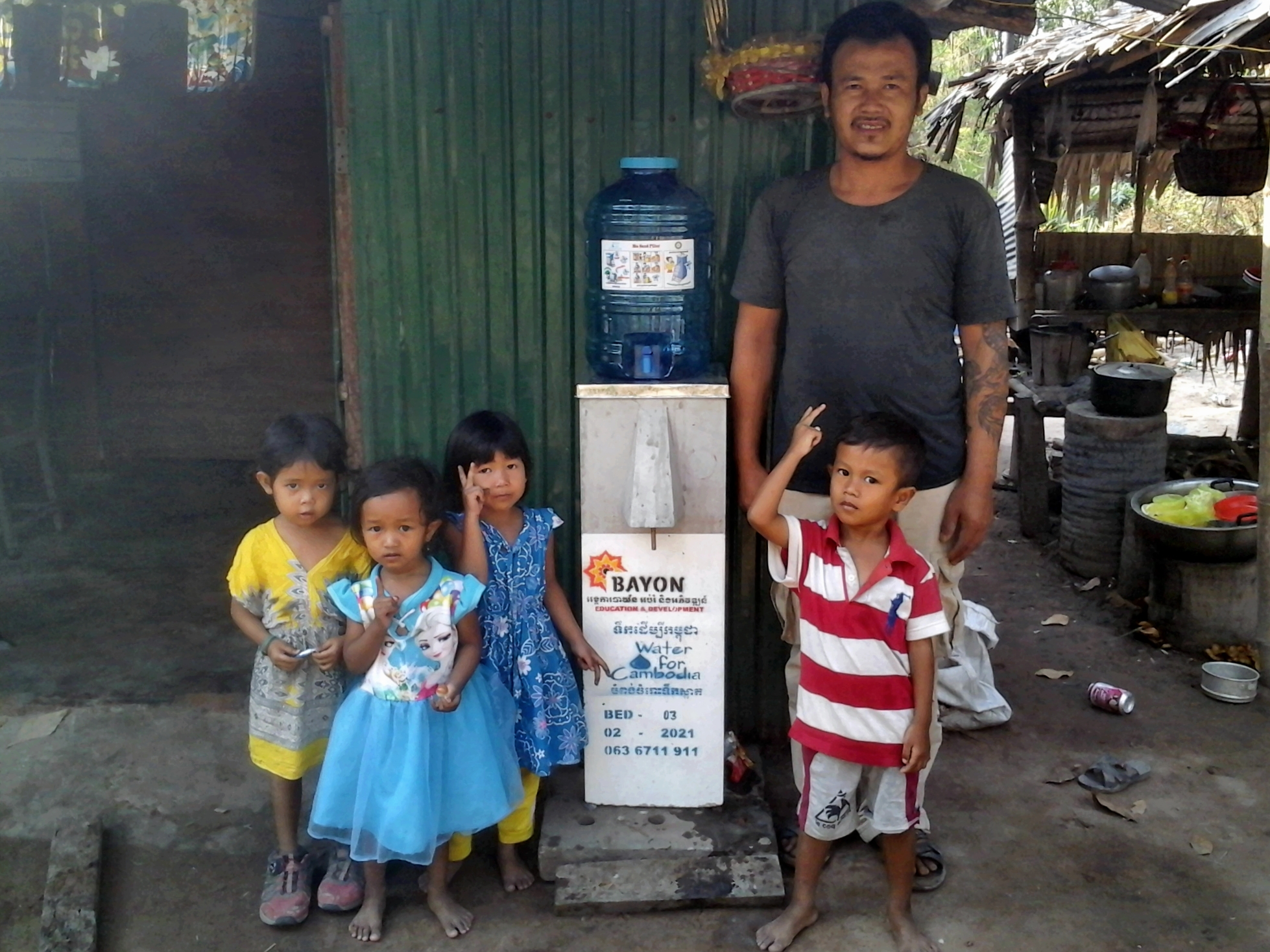
In order to improve hygiene we have proceeded to install individual toilets with the same NGO. In 2021, 9 latrines have been installed, in 2022, 14 are planned or in progress. As the houses are located on archeological sites close to Angkor Wat, we have to obtain authorizations for installation, sometimes after long and difficult approaches.
Emergency medical interventions
The school nurse’s office allows for medical examinations and daily care (wounds, skin infections, various traumas, …). For more serious cases, we are lucky enough to have 2 very good pediatric hospitals nearby, which are completely free of charge.
In order to take care of serious pathologies among our families or students over 15 years old, a special medical fund has been set up for the past 3 years.
We have been able to take care of a student from the pastry school who had a broken tibia that was not well consolidated and would have quickly led to knee arthritis. She had surgery in Phnom Penh and was able to walk normally, thus enabling her to work.
Over a year ago, one of our students presented with a bowel obstruction that could not be managed at the pediatric hospital due to his age. A double intervention was necessary and this young teenager ended up with a colostomy bag. No surgeon in Siem Reap had a solution other than a permanent iliac anus. Fortunately, we were able to find a surgeon in Phnom Penh who was able to perform a difficult operation, allowing him to return to a normal life. Currently all is well and this young boy has been able to regain his spirit and smile!
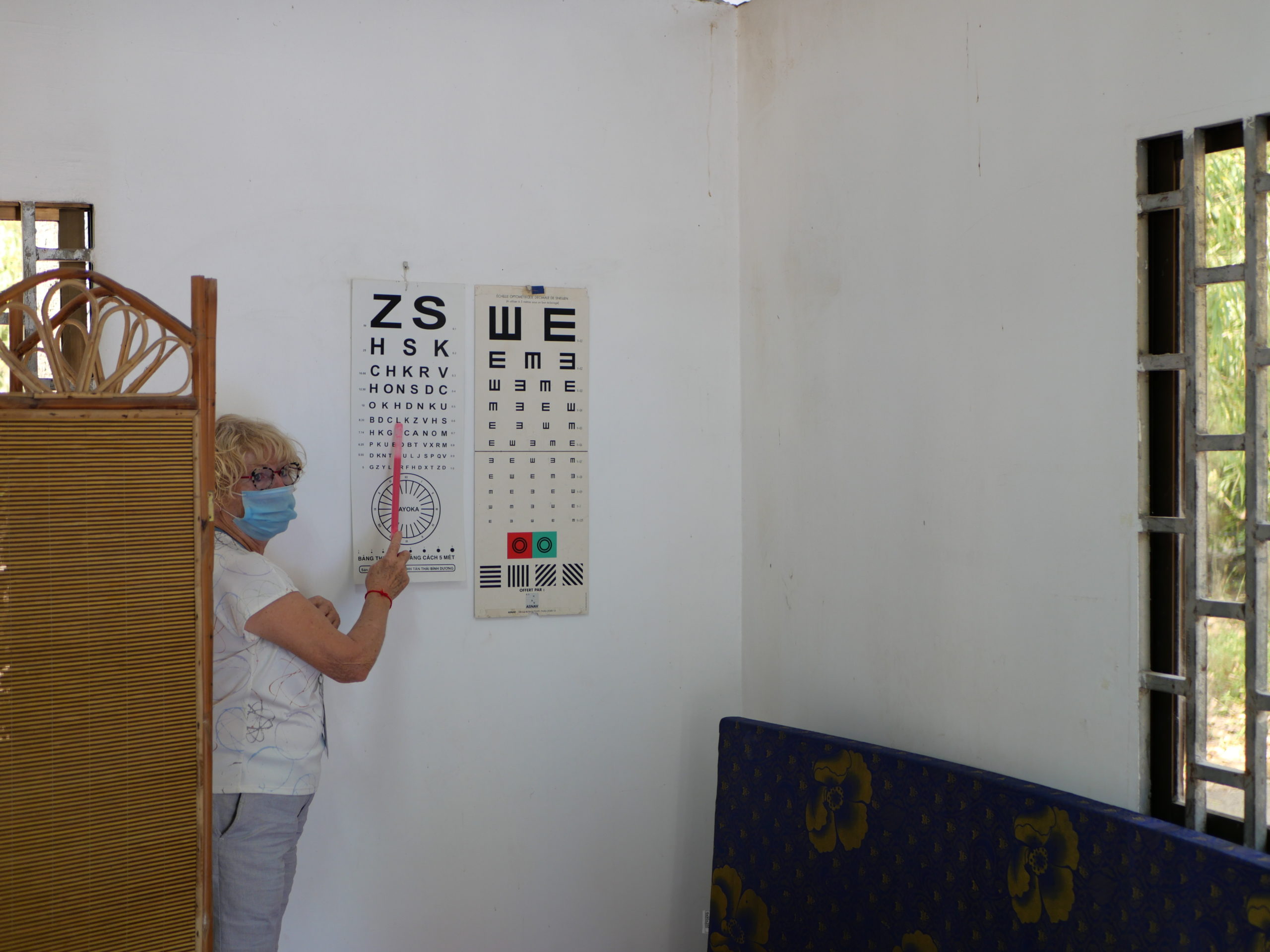
At the end of our 4-month mission, we were able to examine 430 students (elementary school, secondary school and vocational training). The necessary dental, ophthalmological and ENT care is underway and managed by our nurse and social workers. The existence of a medical database where the results of the examinations and the care provided are stored, allows us to follow the progress of the health program from France until our return next November.
